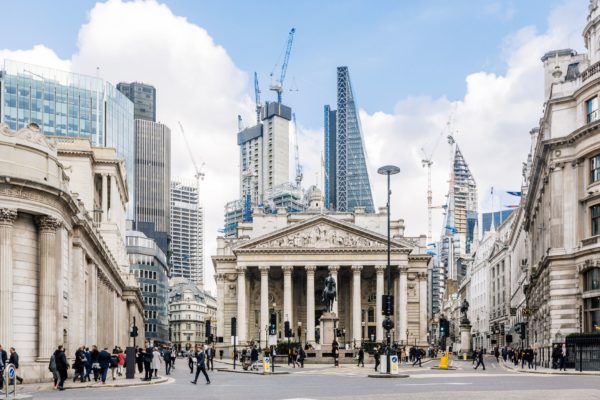The Bank of England (BoE) has voted to increase the base rate by 50 basis points, the highest increase in 27 years. It now means the base rate stands at 1.75%.
The decision comes amid a backdrop of low economic growth but high inflation which is expected to hit 11% in October. Currently inflation is recorded at 9.4%, meaning a typical basket of goods and services was 9.4% cheaper than one year prior.
The Monetary Policy Committee voted by a majority of eight to one to raise the rate to 1.75%. The minority vote preferred to increase the base rate by 25 basis points.
The last time the base rate exceeded this figure was in December 2008, when it sat at 2.00%. It was promptly lowered by 50 basis points the following month in January 2009.

What does this mean for your savings?
Loyal savers may not be benefiting from the base rate rises and they could be missing out on a better return if they fail to compare deals and switch. Interest rates are rising across the savings spectrum. However, out of the biggest high street banks, only one has passed on all five base rate rises, which equate to 1.15%*, and some have passed on just 0.09% since December 2021.
The patience of some savers may be wearing thin, but there is no guarantee they will see any benefit from a base rate rise. Thankfully, challenger banks and building societies continue to compete in this space and the average easy access rate has risen to 0.69%, up from 0.20% in December 2021. With this in mind, there are still accounts out there that fail to beat base rate so there is still more room for improvement.
Keeping abreast of the top rate tables is essential and there is little reason for savers to overlook the more unfamiliar brands if they have the same protections in place as a big high street bank. Easy access accounts remain popular, but savers must be sure to check the terms and conditions as not every deal will give them complete flexibility. In times of uncertainty, it’s wise to have quick access to funds to fall back on to cover unexpected costs.
What does this mean for your mortgage?
Borrowers who have not locked into a fixed rate would be wise to move quickly to secure a new deal as interest rates continue to climb. Fixing for longer may be in the mindset for some, as there is anticipation for further base rate rises to come. Consumers will find that the average five-year fixed rate has breached 4%, and the rate gap between this and the average 10-year fixed rate has closed in since December 2021.
The cost of living crisis, interest rate rises and house price growth could price out would-be buyers if they have little disposable income and subsequently eat into their savings. On the other hand, remortgage customers may find they have more equity in their home but will need to get some independent advice on whether they can comfortably afford to switch their deal.
Borrowers sitting on a standard variable revert rate (SVR) who want to shield themselves from a rise in mortgage repayments could stand to save a decent sum by switching to a fixed deal. The difference between the average two-year fixed mortgage rate and SVR stands at 1.22%, and the cost savings to switch from 5.17% to 3.95% is a difference of approximately £3,333 over two years**. A rise of 0.50% on the current SVR of 5.17% would add approximately £1,400* onto total repayments over two years.
PLEASE NOTE: Your mortgage is a loan secured against your property. Your home may be repossessed if you do not keep up repayments on a mortgage or other loans secured on it.
*Brands considered as the biggest high street banks include Barclays Bank, HSBC, Halifax, Lloyds Bank, NatWest/RBS and Santander. Barclays Bank (Everyday Saver pays 0.01% at £10k gross), Halifax (Everyday Saver – pays 0.25% at £10k gross, up from 0.01%), HSBC (Online Bonus Saver – pays 1.29% at £10k gross when no withdrawals made, up from 0.05% and Flexible Saver – pays 0.20%, up from 0.01% at £10k gross), Lloyds Bank (Easy Saver – pays 0.20% at £10k gross, up from 0.01%), NatWest/RBS (Instant Saver – pays 0.20% at £10k gross, up from 0.01%), Santander (Everyday Saver – pays 0.10% at £10k gross, up from 0.01%).
**Average standard variable rate (SVR) is currently 5.17%. Calculations based on a £200,000 mortgage over a 25-year term on a repayment basis.
Contact Form
Please complete this form if you wish to send us your questions or if you would like to request a call back.
We look forward to speaking with you.
Recent GWM articles that may be of interest
Autumn Budget Statement 2024
How could the range of changes impact your wealth planning? The Autumn Budget Statement 2024 [...]
Who pays for long-term care?
Ensure you’re well-placed to fund any future care needs Many people prefer to avoid the [...]
Smart Money January / February 2025
Smart Money January / February 2025 Welcome to the January / February 2025 edition of [...]
Understanding the rising impact of Inheritance Tax
Exploring strategies to secure your family’s financial future The amount of Inheritance Tax (IHT) paid [...]
Retirement readiness in your 50s
Now is the time to make sure you know how much you need to save [...]
Planning your path to a fulfilling retirement
Are your finances on the right track as you approach this new chapter? As we [...]







